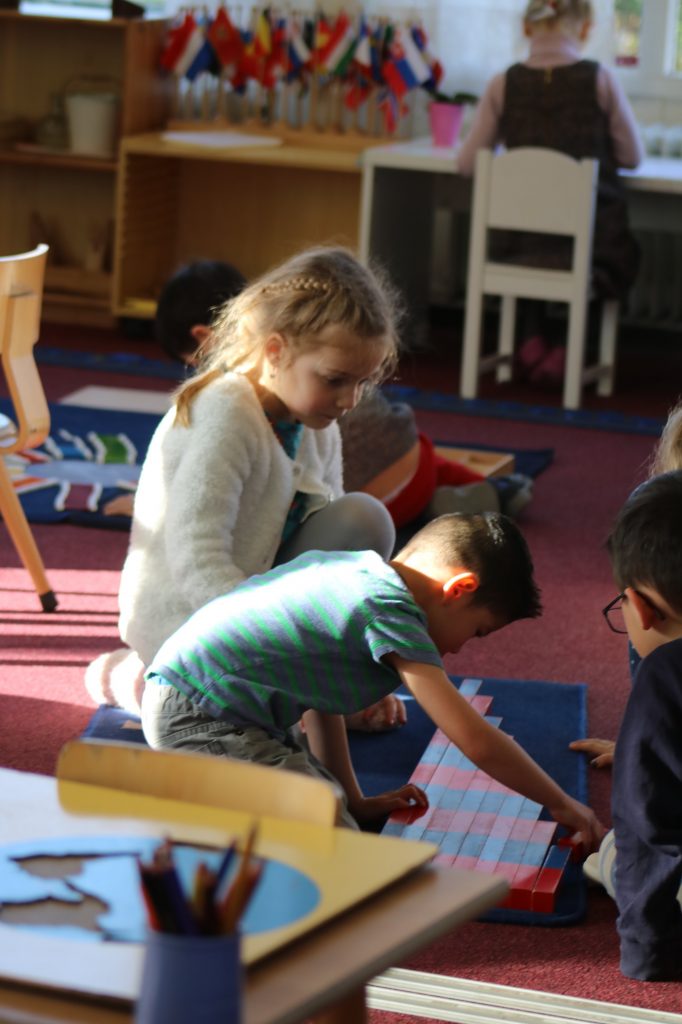Child-centred Approach
The key to a peaceful future lies with children. The nature of childhood experiences determines an adult’s character and personality.
The approach to education is child-centred and is based on mutual respect and cooperation. Children are provided with an ordered and secure environment where they are free to explore and discover. An environment constructed specifically to meet the child’s needs at different stages of development recognises children’s natural love of learning and the importance of learning at their own pace.
Education must not be seen merely as teaching (the passing on of facts) or transferring of a culture. Rather it aids the development of the whole personality and involves parents as well as educators. Montessori education fosters the development of people who value themselves and who feel in control of their lives. Only then can they direct their energies to a wider community and work to build a better world for themselves and others.
This approach is based on following the child – recognising the needs and characteristics of children of each age group and constructing the corresponding enviornment that best meets these needs.

The role of the guide
- Recognize the child’s innate capacity for and desire to learn
- Love and understand the child, and respect his or her dignity and worth as a person
- Develop the total child and integrate the intellectual, emotional, physical, spiritual, and social aspects of life
- Develop the child’s independence and adaptability, linking experience in the school to the outside world
- Adapt the learning approach to suit the child’s individual needs
- Active and Experimental
- Individually paced
- Self-correcting
- Independent
- Unlimited in scope
- Create a learning environment that allows the child to learn how to learn, and to think critically and logically
- Assist the development of the child’s respect for himself, for others and the environment
- Serve as a facilitator, guide, and mentor
What we see at Casa
- Individual-oriented education: Children should choose their own work; children should work at their own pace and at their own level. The motivation to learn will come from within the child.
- A well-prepared environment: Inviting, warm, and orderly. In a well-prepared environment, children feel safe to go to work. Specially designed Montessori educational materials guide children through their lessons. The environment is prepared according to the developmental needs of the children.
- Group guides are facilitators: Montessori guides do not act as formal instructors but act as facilitators in the learning process. Each child is given the freedom to discover the learning materials on their own and after careful observation are shown specific lessons while adapting the environment and learning materials to suit their needs. Group guides are the mentor of a set group of children.
- A group of children of different ages (3 consecutive age groups) works in one large group space with set guides: Children learn effectively from each other by being both instructor to younger children and by being instructed by older children. To facilitate this process, each educational group must be large enough to provide the age variety needed to create this dynamic social network – this is also reflective of society as a whole. Children quickly discover their place within progressive, productive, dynamic, and ever changing social hierarchies. Each educational group is divided into three main groups, reflecting the differing physical, mental, and emotional capacities between younger and older children.